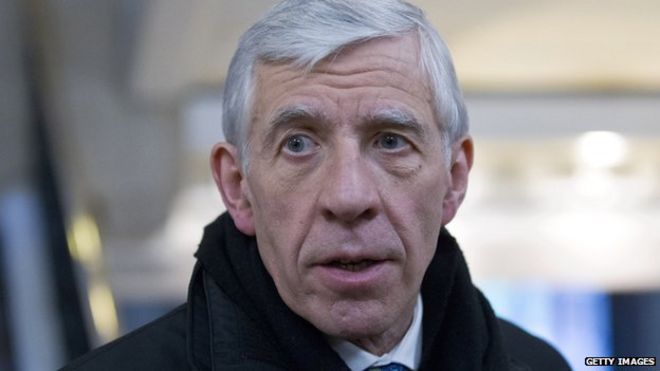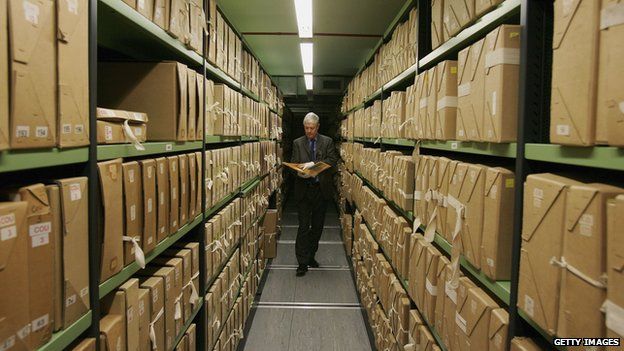Futures Forum: The Freedom of Information Act and East Devon
The District Council's cabinet met this week to consider its FOI policies:
Futures Forum: Transparency at East Devon: District Cabinet to consider report: Wednesday 15th July
This is the report from the Herald:
Breaking news & sport in Sidmouth | Sidmouth Herald
And this is comment from the East Devon Watch blog:
EDDC FREEDOM OF INFORMATION OVERLOAD: IT’S ALL THE FAULT OF HEIR HUNTERS!
15 JUL 2015
It’s Happy-Clappy Midweek Herald day again – all the local good news (apart from shed burglaries) until we get to page 25. There we find a story that EDDC wants to recruit an extra officer to deal with Freedom of Information requests.
Yes, you might think, they certainly need one after two high-profile run-ins with the Information Commissioner recently, one of which led to EDDC appearing in court (in a case which they lost) and one which criticised them for not offering basic guidance on what was needed for them to comply with a request. Both cases involved serious questions about relocation from the Knowle.
But no, it isn’t planning issues (which, from the whatdotheyknow website form a large part of their enquiries), it’s:
companies asking questions about council contracts
and
heir hunters asking about public burials and next of kin!
Now, this raises a fair few questions.
Why are there so many requests from companies asking about council contracts? We know from Information Commissioner v EDDC that the general public are certainly not allowed to see contracts – commercial confidentiality is always cited as the reason not to provide information. But it seems that companies may be getting information we don’t get.
And surely heir-hunters are seeking information already in the public domain.
Whitewash, hogwash and brainwash – with all the washes being given a fast spin by EDDC’s poorly-named “Communications” Department.
Related
EDDC and transparency: the government sets its cats against EDDC pigeons!
It’s Happy-Clappy Midweek Herald day again – all the local good news (apart from shed burglaries) until we get to page 25. There we find a story that EDDC wants to recruit an extra officer to deal with Freedom of Information requests.
Yes, you might think, they certainly need one after two high-profile run-ins with the Information Commissioner recently, one of which led to EDDC appearing in court (in a case which they lost) and one which criticised them for not offering basic guidance on what was needed for them to comply with a request. Both cases involved serious questions about relocation from the Knowle.
But no, it isn’t planning issues (which, from the whatdotheyknow website form a large part of their enquiries), it’s:
companies asking questions about council contracts
and
heir hunters asking about public burials and next of kin!
Now, this raises a fair few questions.
Why are there so many requests from companies asking about council contracts? We know from Information Commissioner v EDDC that the general public are certainly not allowed to see contracts – commercial confidentiality is always cited as the reason not to provide information. But it seems that companies may be getting information we don’t get.
And surely heir-hunters are seeking information already in the public domain.
Whitewash, hogwash and brainwash – with all the washes being given a fast spin by EDDC’s poorly-named “Communications” Department.
Related
EDDC and transparency: the government sets its cats against EDDC pigeons!
2 thoughts on “EDDC Freedom of Information overload: it’s all the fault of heir hunters!”
15 Jul 2015 at 11:53am
In essence, EDDC were separately criticised, in an exceptional manner each time, by both the First Tier Tribunal and the Information Commissioner. The First Tier Tribunal accused the council of being untruthful and of obstructing the court process, hardly a trivial accusation, and if the submission of illegible documents was deliberate then there may have been criminal acts. The Information Commissioner was equally damning, pointing out that EDDC had failed to do almost anything correctly in handling my FoI request.
So these judgement criticise both the submission of legal documents to a court and the actions of the FoI team including the Monitoring Officer
So just how appropriate is it for the CEO to decide that he would delegate the reviewing of these judgements to the Head of Legal / Monitoring Officer who has clear conflicts of interest?
And is it really surprising that the resulting report which is presented to tonight’s Cabinet meeting tries to trivialise the seriousness of these judgements, with sleight of hand about what the tribunal meant by “obstructive” and calling the failures in following the Freedom of Information Act “minor”.
But many of us will NOT be surprised if, at tonight’s Cabinet meeting, the council leadership want us to believe that “there is no whitewash at the Knowle”.
EDDC Freedom of Information overload: it’s all the fault of heir hunters! | East Devon Watch
This is happening within the context of central government proposing changes to the FOI Act.
This is the Guardian's take over the weekend:

Martin Rowson on the Freedom of Information Act review – cartoon | Comment is free | The Guardian
UKIP MP Douglas Carswell gave his opinion in the Mail on Sunday today:
This law has allowed us to expose dodgy MPs, paedophiles, nuclear risk, RAF air raids and scroungers: So it's no wonder that Tories now want to ban Freedom of Information, writes DOUGLAS CARSWELL MP
By DOUGLAS CARSWELL UKIP MP FOR THE MAIL ON SUNDAY
PUBLISHED: 01:25, 19 July 2015
PUBLISHED: 01:25, 19 July 2015
Can you imagine if there was no Freedom of Information law? MPs would still be abusing their expenses, billing the taxpayer to buy second homes, the way they used to. Information of legitimate interest to the public would have been kept from the public.
Last year, there were 120,000 FoI requests. The overwhelming majority were made by private citizens simply wanting to know what those who make the key decisions that affect their lives were up to.
Tellingly, Tony Blair says that enacting the Freedom of Information Act is one of his main regrets. Once in office, Ministers from all parties come to resent the Act. Why? Because it makes them have to constantly account for their actions.
So what are we to make of the fact that last Friday afternoon, shortly before the summer recess, Ministers quietly announced a review? A cross-party panel has been formed to examine the 'appropriate balance' between the public's right to know and the 'need for sensitive information to have robust protection'.
We should be highly suspicious.
First, look at who the Government has appointed to sit on the panel.
Perhaps Heather Brooke, an award-winning Freedom of Information campaigner whose dogged determination has caused more than a few red faces in Whitehall?
Of course not.
Journalists who have used Freedom of Information to reveal waste and duplication in government?
Not a bit of it.
Alongside him will be former Labour Minister Jack Straw, who is already on record as saying Freedom of Information has gone too far. In 2009, as Lord Chancellor, Straw issued the first Ministerial veto against an FoI request when he blocked access to the contents of the legal advice on UK military action against Iraq.
Also on the committee will be ex-Tory leader Lord Howard, who once had Lord Bridges – the Minister overseeing the review – working for him at Conservative Party HQ.
It would be unfair to suggest that all those on the panel are the type of people who have built their careers by toadying up to the Whitehall establishment. They are, however, hardly likely to be radical advocates for extending the public's right to know what officials are up to.
Putting this lot in charge of Freedom of Information would be like putting supermarket bosses in charge of competition policy.
This cluster of grandees has been told to ensure that there is a 'safe space for policy development'. There already is. The law already allows Ministers and officials to refuse to disclose information on the basis that it relates to policy work. Indeed, I have had half a dozen Freedom of Information requests turned down on that basis. No one seriously suggests that Ministers and officials should not be allowed to consider a full range of policy options in private.
The Government's efforts to water down FoI rules are disturbing not only because of what it could mean for the relationship between the governing and the governed. It tells us something about the high-handed attitude of David Cameron's administration less than three months after it took office.
There is more than a whiff of arrogance about all this. Who do they think they are that they can change the public's right to hold Ministers to account like this? No longer constrained by the Liberal Democrats, Ministers seem to be preparing to ram through a change that would undo one of the great democratising reforms of our time. They are doing it because they can.
Despite getting a mere 37 per cent of the vote on Election day in May, Ministers are behaving as if they have 100 per cent of the power. Perhaps it will be the Commons, rather than Nick Clegg, that now needs to rise to the occasion and teach Mr Cameron about the importance of limited government.
Over the past decade, digital technology has made it far cheaper and easier to disclose information. Claiming that the costs and bother of answering FoI requests are reasons not to is nonsense. Instead of rowing back from greater disclosure, a truly modernising administration should be looking to build on the Act by making disclosure the norm. Data should be made available without members of the public having to ask for it.
It is precisely because this Government, like all governments, has reverted so rapidly to type, that we need the power to hold it to account. Information is power.
If we know less about what Ministers and their officials are up to, we will be at the mercy of their cock-ups and whim.
Why Tories now want to ban Freedom of Information DOUGLAS CARSWELL MP | Daily Mail Online
Meanwhile, the committee has come to its own defence:
Freedom of Information review panel open-minded, says Jack Straw
18 July 2015

The act was introduced by Mr Straw when home secretary
A review of the Freedom of Information Act will be "open-minded", former Home Secretary Jack Straw has said.
A review of the Freedom of Information Act will be "open-minded", former Home Secretary Jack Straw has said.
Mr Straw introduced the act in 2000 but his place on a panel examining its work has been criticised by campaigners.
The ex-Labour MP has said inquiries about ministerial communications and the formulation of government policy should not be allowed any more.
But he told the BBC the review would weigh the evidence carefully including that from groups opposed to the act.
The review was launched by the Cabinet Office amid concerns within government that "sensitive information" was not being protected.
The Campaign for Freedom of Information, however, says the panel does not include any advocates for transparency. It suggests changes will see more requests being refused, resulting in "bad decisions and policy mistakes" concealed.
The five-member committee also includes former Conservative Home Secretary Michael Howard, some of whose decisions in government were disclosed using the act. It will be headed by Lord Burns, the most senior civil servant in the Treasury between 1991 and 1998.
The other members are Lib Dem peer Lord Carlile, the former Independent Reviewer of terrorism legislation, and Dame Patricia Hodgson, chair of the broadcasting regulator Ofcom.
Speaking on BBC Radio 4's Today programme, the director of the Campaign for the Freedom of Information, Maurice Frankel, said the panel's composition "was not the basis for an independent review".
Mr Frankel added: "Jack Straw has already made his views [clear] on all the issues - he's in favour of restricting the act to make it impossible to obtain policy advice or internal discussions, he's in favour of introducing charges for information and making it harder for people to obtain information."
'Inviting change'
Mr Straw said some critics of the commission would complain even it were "chaired by the Archangel Gabriel".

The act gave people the right to access recorded information held by government and other public sector bodies
"I think that it's right to review the operation of the act," he said.
"I think that it's right to review the operation of the act," he said.
"Of course, the Freedom of Information Campaign would criticise any review.... but I go into this inquiry to be as open-minded as possible and to weigh the evidence carefully including that from the Freedom of Information Campaign."
A Labour source said Mr Straw was acting in a personal capacity on the commission and was not representing the party.
The source said: "If the government were genuinely interested in improving the workings of the act, it should have chosen a more balanced panel."
A Labour Party spokesman said: "The commission's terms of reference clearly invite a change in the terms of the act. Our freedom of information laws are a crucial check on the power of the executive and the government should not attempt to restrict them by the back door."
The passing of the act gave anyone the right to access recorded information held by government and other public sector bodies. It obliged public authorities in England, Wales and Northern Ireland, and UK-wide authorities based in Scotland, to publish certain information about their activities.
But former Prime Minister Tony Blair has since described the law as one of his "biggest regrets", arguing it has had the effect of denying civil servants a "safe space" to properly advise ministers.
Freedom of Information review panel criticised
18 July 2015
Review of Freedom of Information laws announced
17 July 2015
Charles letters: What ruling means for freedom of information
26 March 2015
Is there trouble ahead for Freedom of Information?
13 May 2015
Related Internet links
Campaign for Freedom of Information


1 comment:
Whilst the Sidmouth Herald's article is a fair representation of what was said at last week's Cabinet meeting, it really does not do justice to either:
a. the seriousness of the comments aimed at EDDC by both the Tribunal and the Information Commissioner, or
b. the amount of change needed not only to EDDC's processes but more importantly to their whole attitude to transparency.
Their FoI processes certainly suffer from a lack of resources - and it was great to hear that they will be employing another officer to try to speed things up. Its a pity that it took a First Tier Tribunal judgement to force them to increase resources rather than performance monitoring showing that they were persistently breaking the law. (see what I mean about attitude?)
Of course, they had to say something in response to these two judgements, but words are easy to say. TO change their attitude to become more transparent is much harder, and my own experiences (including recent experiences trying to get hold of historic meeting agendas and minutes) suggest that they have a LONG LONG way to go.
If they are genuine about transparency then as a first step I CHALLENGE THEM, as a matter of urgency, to publish all Knowle documents and the Agendas and Minutes of the Asset Management Forum for the past 6 years - documents that they are actually REQUIRED to publish anyway.
Post a Comment